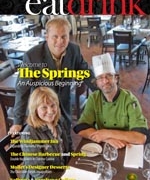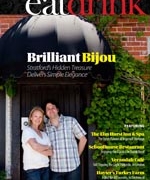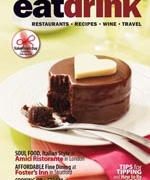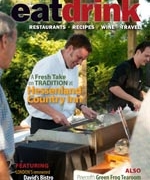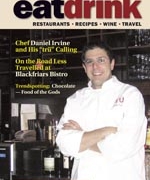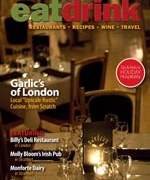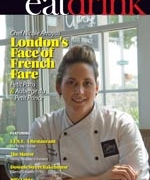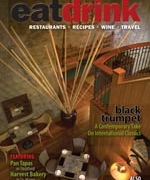Revival on Rye
David Sax is a Toronto-born, Montreal-educated author who currently resides alongside the most successful delicatessens in New York. The number of delis in New York has been dwindling – numbering close to two thousand at its zenith in the 1930’s, decreasing to 150 in 1960, and currently home to only a few dozen – and Sax cannot believe that with outstanding food and rich history that they are experiencing such a downfall. Toronto also has seen a decline from several dozen delis twenty years ago to only six now. Unfortunately, like many family-run businesses in the shadow of corporate entities, delis are on the brink of extinction, shutting down at a rapid pace because of increasing rental prices and other operating costs. If the love of Jewish food could keep a business open, there would be no problems, but monetary constraints and slowing economy interfere. Sax set out to draw attention to his beloved restaurants with his book, Save the Deli: In Search of Perfect Pastrami, Crusty Rye, and the Heart of Jewish Delicatessen.
The deli has a long history in North America, most started by Jewish or Polish immigrants making food from their homeland, but “the turning point for Jewish delicatessen, which catapulted it from an obscure immigrant food to an American cuisine, was the marriage of this cookery (spiced pastrami) with the simultaneously emerging American obsession with the sandwich.” Sax has a passion for this type of food and lives for the “momentary high that comes from eating a truly great deli sandwich, when the senses are heightened and the body shuts down to savour the pleasure.” He even gives us an account of his one-day stint at the famous Katz’s Delicatessen in New York to learn the proper technique for slicing pastrami, halving sandwiches, and serving mustard (never mayonnaise) on a sandwich. It is here that he learns that pastrami slices are sampled by true deli-lovers like tasting wine before selecting a bottle. And when smoked meat is compared to wine, you know it has to be good.
To garner as much of this mouth-watering pleasure as possible, Sax visits numerous delis across North America and beyond; the best ones he found were family run, handed down through generations to children traditionally-minded enough to keep family recipes alive. Jerry’s Famous Deli has become the most controversial shop across America for going corporate and having stocks on the NASDAQ. But most of the best delis resist the temptation to franchise, like Schwartz’s in Montreal that reportedly has the best smoked meat sandwiches in the world and even serves the inevitable, ultra-Canadian smoked meat poutine.
Deli food is the ultimate comfort food and it stands to reason that the best tasting food comes from the most lovingly prepared, from hand-cut slices of pastrami, to melt-in-your-mouth matzo balls, to warm challah bread, to the way of making a carbonated beverage as an old-fashioned soda jerk would at Wilensky’s in Montreal (in contrast to the ubiquitous canned beverages surrounding us). The traditional food, the likes of rye bread and ox tongue, crop up across the U.S. and Canada, but Sax also found some specialty items like the German-inspired Reuben Streudel at Kaufman’s Bagel & Deli in Chicago and the Japanese-style Kobe beef pastrami in San Francisco. Not to mention a rare Yiddish dish called p’tcha made with jellied calves feet, garlic, and eggs (unusually described as garlic Jell-O) that cropped up unexpectedly in a few delis Sax visited.
The biggest Jewish communities reside in New York and Chicago, but Montreal and Toronto have as much to add to the deli legacy and Sax spends time in both cities. About Montreal, he writes: “Even after all the great delicatessens I’ve visited around the world, nothing matches Montreal. It is nirvana for deli purists. Visiting New Yorkers remark how much Montreal’s delis remind them of all their city has lost. Montreal’s delis have remained stubbornly original in their décor, food preparation, and menus. If the deli is to be saved, a large part of the solution lies in the mysterious Montreal smoked meat.” Montreal smoked meat reigns supreme, but Toronto is more known for its corned beef-style sandwiches and has a unique form of braised beef not seen anywhere else.
Of course, the kosher debate has a place in any book about delis and Sax sets us straight on the terminology of kosher foods. Kosher laws allow for meat to be used only from the front half of cattle, and pastrami itself is made from a cut of meat known as the navel, found along the belly; brisket, another deli staple, is found in the same area. Glatt kosher is the term for the most stringent kosher laws being observed by a deli with resident, full-time authorities present at all times to inspect all food. Not only is the employ of these authorities very costly, but meat bought for a glatt kosher usually costs $1 per pound higher than non-kosher meats. Any other deli considered to be kosher is seen as being a bit more lax but still inspected regularly by kosher authorities. There are even kosher-style delis that may follow certain laws, such as not mixing meat with milk, but don’t have the supervision that orthodox business people have to maintain their kosher certification. And there are the more modernized, restaurant-minded delis that cannot be considered kosher and just serve food without any of the kosher laws in their way.
The food may by the star of delis, but the establishments themselves are more than eating places, they are venues of social life and local gossip (it isn’t uncommon that young Jewish couples have first dates at local delis). Sax knows that preserving this neighbourhood-feel of delis is as important as their food and, even after his book has been published, his website with the same name (www.savethedeli.com) continues his ongoing pursuit to draw awareness to this culinary tradition.

